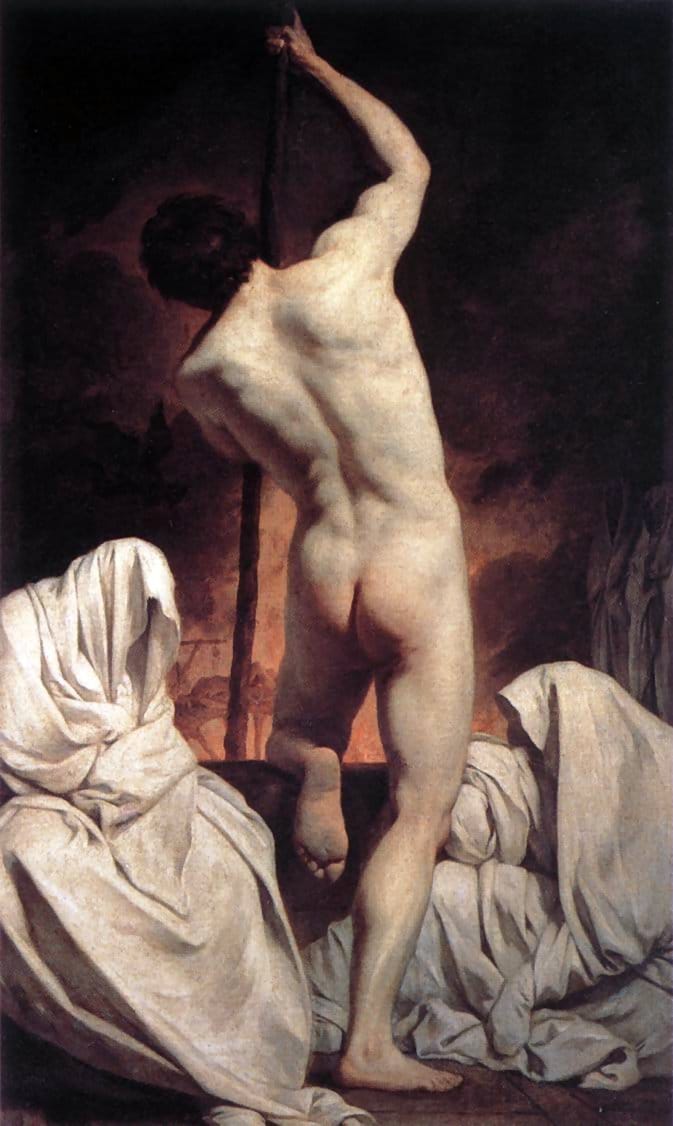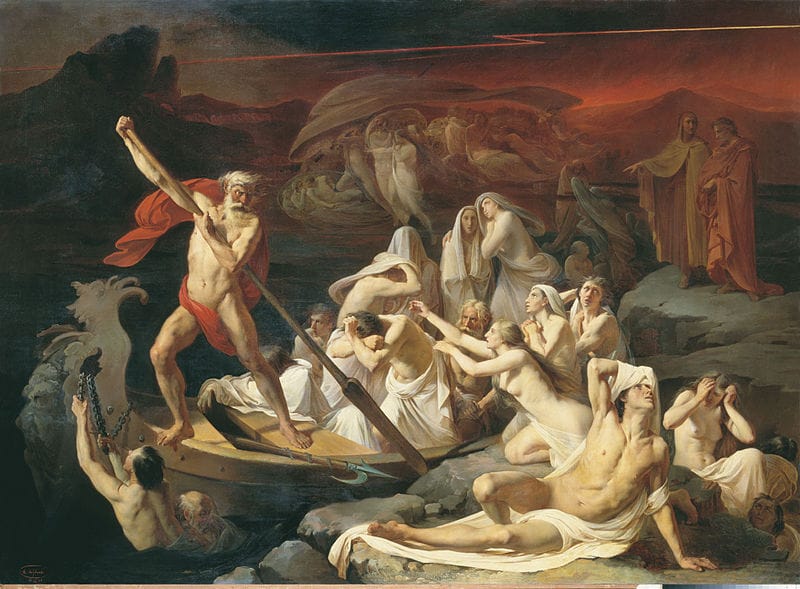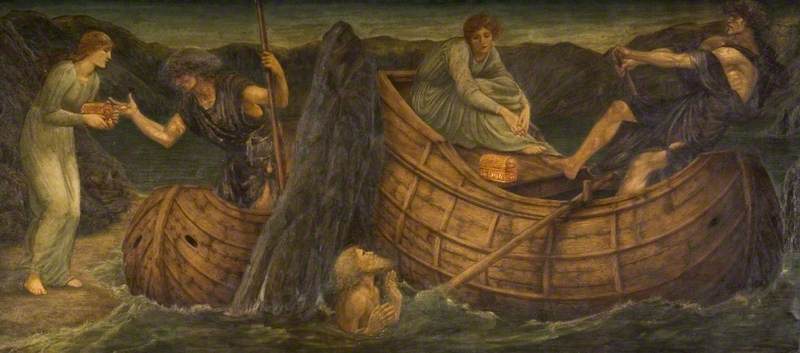THE FERRYMAN CHARON IN GREEK MYTHOLOGY
Charon is an iconic figure of Greek mythology, for the minor god, or daemon, was the ferryman of the dead in the Underworld, and is often depicted on his skiff transporting the souls of the deceased.
Charon son of NyxCharon is a deity of the Greek Underworld, and is often referred to as a spirit and a daemon.
Charon was the child of two early deities of the Greek pantheon, Nyx (Night) and Erebus (Darkness). Nyx and Erebus were primordial gods, Protogenoi, suggesting that their children, and therefore Charon, predates the time of Zeus and the gods and goddesses of Mount Olympus. Nyx and Erebus had many children, and so Charon was sibling to many of the “dark” figures of Greek mythology, including the goddesses Nemesis (Vengeance) and Eris (Strife) and the gods Thanatos (Death) and Geras (Old Age). |
Charon the Ferryman
|
As with most of the children of Nyx and Erebus, Charon was said to reside within the Greek Underworld, and his role for eternity was to act as ferryman of the dead.
The idea was that Hermes, or another Psychopomp, would escort the newly deceased to the banks of the River Acheron, the River of Pain. Here the skiff of Charon would await, with Charon taking the deceased across the river, as long as they could pay the fare. Charon’ fee was said to be coinage, either an obolos or Persian denace. Neither coin was particularly valuable, but in order for the deceased to have in their possession such a coin, meant that the deceased had been subjected to the proper funeral rites; for the obolos would have been placed in the mouth of the newly deceased. Those that could not pay Charon’s fee would wander aimlessly along the banks of the Acheron for 100 years, with their spirits found as ghosts upon the earth, perhaps haunting those who had not undertaken the expected funeral rites. Those that could pay the ferryman of the dead, would be safely transported across the Acheron into the heart of Hades’ realm. The deceased could then stand in front of the Judges of the Dead, who would pass judgement on how they would spend eternity. It is often said that Charon was the ferryman across the River Styx, although this was a later alteration of the Charon myth, for of course the Styx was the most famous of the rivers found in the Greek underworld. |
|
CHaron the Strongman
Traditionally, Charon was portrayed as an elderly man, found stood upon his boat, with a skiff pole, or double-headed hammer in hand. There was nothing frail about Charon though, for he was imbued with enormous strength, and with this strength and weapon in hand, who would ensure that no-one who had not paid could make it on to his skiff.
Charon and the Living
|
The Underworld was of course the land of the dead, but crossing the Acheron was also the primary manner in which the living could make it into the realm of Hades. The living of course were not supposed to be in the Underworld, and Charon was certainly not supposed to help them, but a significant list did make use of Charon and his skiff.
Psyche, prior to the Apotheosis of the princess, was thought to have paid Charon to allow her to cross into the Underworld. Psyche at the time was in search of Eros, who had fled from their bed, when Psyche looked upon him. |
|
It is also generally assumed that Theseus and Pirithous paid Charon for the crossing of the Acheron when they sought to abduct Persephone from the Underworld. Theseus though was a cunning figure, much like Odysseus, and so the Greek hero may have duped Charon into transporting the pair for no payment.
Certainly other figures managed to make Charon transport them without payment. Orpheus would charm Charon with his music as he sought Eurydice, although Charon would only allow Orpheus a single passage based on the melody played. The Trojan hero Aeneas, whilst in the company of the Cumaean Sibyl, and as he sought his father, produced the magical Golden Bough, to induce Charon to allow him and the Sibyl to pass across.
Heracles though did not seek to charm or pay Charon for his passage across the Acheron, and instead Heracles forced the ferryman to transport him. Heracles did this either by wrestling the strong Charon into submission, or else simply by intimidating the minor god by frowning at him.
Later writers, particularly in the Roman period would tell that Charon was punished every time he let the living into the Underworld, and in particular for allow Heracles into the realm of Hades, Charon was said to have been punished by a year in chains. Whether the deceased during this period simply waited upon the banks of the Acheron, or whether someone else operate the skiff of Charon, is not elaborated upon in those ancient sources.
Certainly other figures managed to make Charon transport them without payment. Orpheus would charm Charon with his music as he sought Eurydice, although Charon would only allow Orpheus a single passage based on the melody played. The Trojan hero Aeneas, whilst in the company of the Cumaean Sibyl, and as he sought his father, produced the magical Golden Bough, to induce Charon to allow him and the Sibyl to pass across.
Heracles though did not seek to charm or pay Charon for his passage across the Acheron, and instead Heracles forced the ferryman to transport him. Heracles did this either by wrestling the strong Charon into submission, or else simply by intimidating the minor god by frowning at him.
Later writers, particularly in the Roman period would tell that Charon was punished every time he let the living into the Underworld, and in particular for allow Heracles into the realm of Hades, Charon was said to have been punished by a year in chains. Whether the deceased during this period simply waited upon the banks of the Acheron, or whether someone else operate the skiff of Charon, is not elaborated upon in those ancient sources.
|
|


